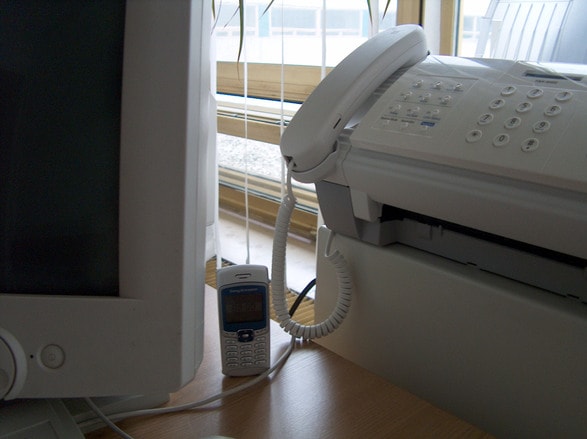On October 25, 2023, the United States Court of Appeals for the Ninth Circuit issued its decision in True Health Chiropractic, Inc. v. McKesson Corp., finding that the lower court: 1) had correctly determined that Defendants violated the TCPA’s junk fax prohibition; 2) had properly decertified the proposed class; and 3) did not abuse its discretion in denying treble damages to Plaintiffs.
As our readers are aware, the Telephone Consumer Protection Act (“TCPA”), as amended by the Junk Fax Prevention Act, forbids the sending of a fax advertisement “to any person without that person’s prior express invitation or permission, in writing or otherwise.” The Ninth Circuit found that Defendants had violated the TCPA’s junk fax prohibition by failing to obtain adequate consent to deliver the subject fax advertisements to Plaintiffs. More importantly, however, the Ninth Circuit affirmed that Defendants’ violations only applied to Plaintiffs in their individual capacities. As such, because the TCPA awards $500 non-treble damages per violation, the Ninth Circuit’s decision all but assured Defendants that they would not be liable for more than $2,000 (4 total alleged unsolicited faxes), before costs and fees.
Why Did the Court Uphold Class Decertification?
In upholding the district court’s decision to decertify Plaintiffs’ proposed class, the Court determined that it was bound by the Federal Communications Commission’s (“FCC” or the “Commission”) Amerifactors declaratory ruling. In Amerifactors, the FCCdetermined that the TCPA does not apply to faxes received through an online fax delivery service. Considering that traditional fax machines are rarely used anymore, the Amerifactors ruling served to effectively bar the lawsuit from proceeding as a class action.
In their appeal, Plaintiffs argued that Amerifactors was “neither an order of the Commission, nor final.” Plaintiffs claimed that Amerifactors was not an order of the FCC because it was issued by the FCC’s Consumer and Governmental Affairs Bureau (the “Bureau”) and not the entire Commission. Accordingly, Plaintiffs argued, it did not carry the full force of an order of the Commission. The Court ruled, however, that rulings issued on authority delegated by the FCC carry the same weight as if issued by the FCC itself.
Amerifactors made clear that an online fax service is not a “telephone facsimile machine” and, thus, falls outside the consumer protections afforded by the TCPA’s Junk Fax Protection Act. As a final order of the FCC, Amerifactors is only reviewable by federal courts of appeal. Accordingly, the ruling was binding on the district court, thereby obligating it to grant summary judgment to Defendants on any class claims arising from the receipt of an online fax.
Because Plaintiffs could not propose a method for distinguishing class members who had received faxes on a stand-alone fax machine from those who had received faxes through an online service, Plaintiffs’ claims were rightfully restricted to proceed on an individual, rather than a class wide, basis.
Why does McKesson Matter to your Business?
Although not as prevalent today, faxes are still sent business-to-business. Traditional fax machines use “ink, toner, or paper, or otherwise . . . money” to print out an incoming fax. Unsolicited faxes that arrive on a traditional fax machine cause tangible harms seemingly deserving of the FCC’s protection. A majority of modern faxes, however, are transmitted through online fax services, appearing as an attachment to an email in the recipient’s inbox. It follows that the FCC would issue a declaratory ruling determining that an online fax service falls outside the protections afforded by the TCPA’s junk fax prohibition. Because there is no cap on damages under the TCPA, McKesson is a major decision for businesses engaged in online fax marketing.
Still, any business that engages in fax marketing opens itself to possible TCPA claims. Marketers should always utilize the safest approach, which is to obtain prior express consent from recipients before sending a marketing piece via facsimile transmission. The attorneys at Klein Moynihan Turco have decades of experience in defending companies that face unsolicited telemarketing claims. If you are interested in working with a law firm that has an extensive track record in the telemarketing field, please email us at info@kleinmoynihan.com or call us at (212) 246-0900.
The material contained herein is provided for information purposes only and is not legal advice, nor is it a substitute for obtaining legal advice from an attorney. Each situation is unique, and you should not act or rely on any information contained herein without seeking the advice of an experienced attorney.
Attorney advertising
Similar Blog Posts:
Court Narrows TCPA Fax Opt-Out Rule




